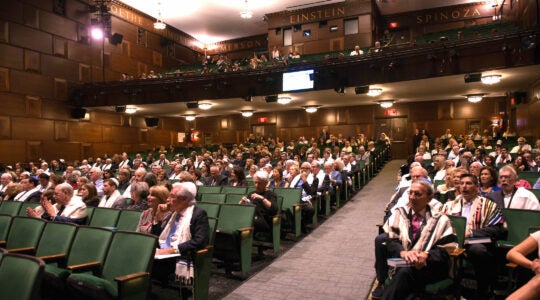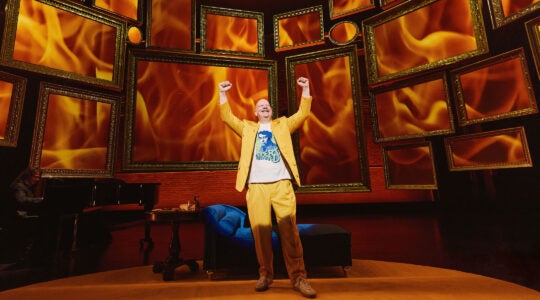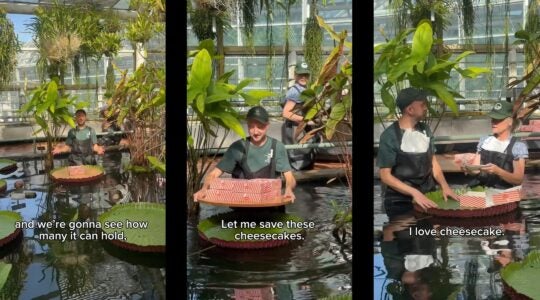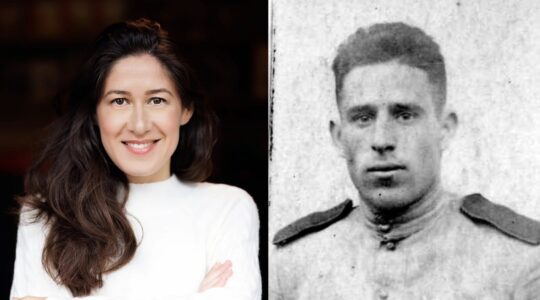‘Take the plastic cup and put it on top of the container — right side up!” “It’s too noisy in here! I can’t understand what the architect is saying!”
Last week there was energy and enthusiasm in our school’s “MakerSpace,” a combination of engineering lab and woodshop, as second graders worked together in teams to build towers. There was one catch: the “architects” who were directing the “builders” could not see the construction site since a large cardboard barrier stood between them. Students had to think on the spot about how to build in the midst of this communication challenge.
The students were participating in a Migdal Bavel (Tower of Babel) simulation exercise, predicated on what they had studied in their Chumash class the previous day. Students explored the narrative, found at the very end of Parshat Noach, in which people tried to build an “ir u’migdal ve’rosho ba’shamayim” (a city and a tower with its top in the heavens) [Genesis 11:4]. When I asked students why they thought God foiled this building attempt and confused everyone’s language, one student replied, “Because God needed space [from humanity]!”
In this week’s Torah portion, Nitzavim, we encounter another component of the relationship between people and “shamayim” (the heavens). In Moshe’s final speech to Bnai Yisrael, he states, “lo ba’shamayim hee leimor…” (it is not in the heavens, that one should say, who among us can go up to heaven and get it for us, and impart it to us that we may observe it?) [Deuteronomy 30:12]. This verse became the biblical foundation for a famous Talmudic sugya [Bava Metzia 59b] known as the “Tanur Shel Achnai” (The Oven of Achnai), in which God’s opinion is set aside and rabbinic authority actually decides the law instead. The passage concludes with God conceding to the rabbis, “Nitzchuni banai; nitzchuni banai” (“My children have triumphed over Me; My children have triumphed over Me”). God was joyful to watch humanity take ownership of the Torah, instead of only relying on Divine intervention.
Exploring Nitzavim, in light of my students’ experience in MakerSpace, sheds new meaning on “lo ba’shamayim hee.” It’s not only that God needed space, but that God wanted to give us space to interpret the Torah for ourselves. Moshe is in essence telling Bnai Yisrael that they don’t need to metaphorically build a tower, as was attempted in Genesis, in order to reach God and access God’s Torah. Rather, the Torah is now within their reach.
In “A Living Covenant,” Rabbi David Hartman describes this new relationship between God and the Israelites as “grounded in a mature feeling of autonomy rather than in childhood dependency.” Hartman explained how “lo ba’shamayim hee” depicts “the feeling of intellectual competence” by the authors of the Talmud, no longer needing God’s intervention.
Thinking back to the MakerSpace activity, “lo ba’shamayim hee” actually serves as a precursor for a style of learning often referred to as “constructivist learning,” where students are actively involved in their learning rather than passively receiving information from their teacher. In Tara Mohr’s book, “Playing Big,” she writes: “What if the typical school asked students not only to learn the existing body of knowledge on a subject but also to identify unanswered questions, untested assumptions, voices and views neglected in that body of knowledge? That’s what is required to teach students to innovate and to lead.”
God encourages us to take ownership of Torah.
Parshat Nitzavim is giving us the tools to live in the real world so that we can be innovators and leaders in the teachings of the Torah. God is transitioning to this new style of authority and providing us tools of autonomy within the framework that God crafted. God has shed the traditional role of a teacher, embracing this “constructivist learning” model by encouraging us to take ownership of the Torah and its application to our lives.
Thinking back to the Tower of Babel building challenge, I imagine God sitting beside one of the student architects, chuckling, “Nitzchuni banai; nitzchuni banai” — My children have triumphed over Me!
Rabbi Yael Buechler is the Lower School Rabbi at The Leffell School (formerly Schechter Westchester) and founder of MidrashManicures.com, which produces fashion accessories for Jewish holidays, including High Holiday Nail Decals. She recently participated in the AVI CHAI-sponsored Art of Leadership program at the Principals’ Center of the Harvard Graduate School of Education.
The New York Jewish Week brings you the stories behind the headlines, keeping you connected to Jewish life in New York. Help sustain the reporting you trust by donating today.




